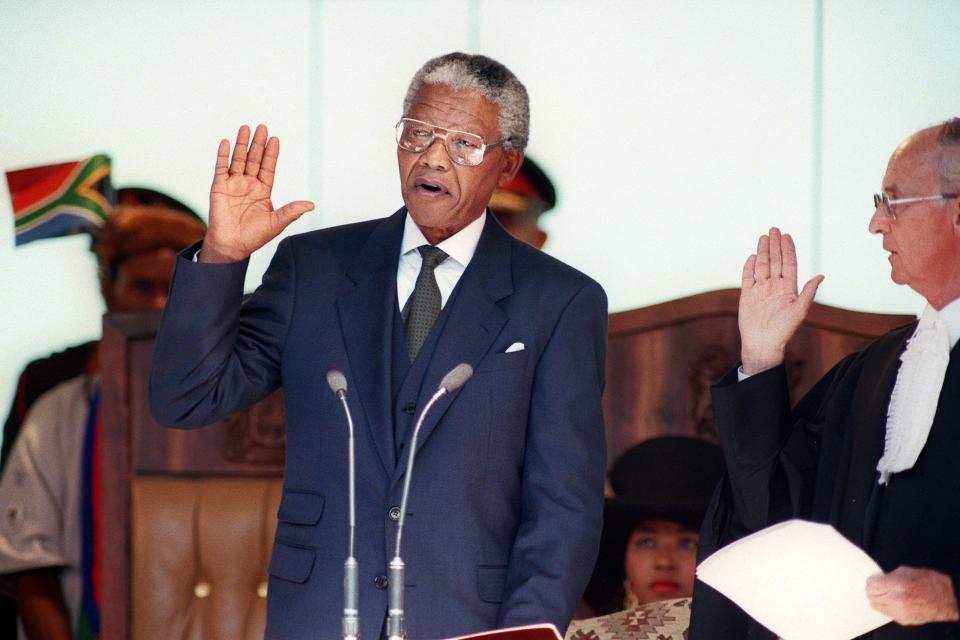Little seems to have changed since South Africa’s first free elections
It’s not often that a newspaper headline makes me snivel tears of quiet joy. But then it’s not often that I find myself living in a country set to enjoy its first democratic elections with universal suffrage. Yet there I was, an adventurous if naive 18-year-old teaching in Johannesburg on a gap year. And there it was, on the first day of that heady voting period in late April 1994, loud and proud and gloriously dominating the front page: “Vote, the beloved country.” Alan Paton’s seminal 1948 novel about fraught racial politics in South Africa had told the beloved country to cry; better days surely now lay ahead.
It was both fascinating and frightening to observe close up this momentous time as an outsider welcomed into the community of a high-achieving girls’ school (as one wag pointed out: “Just what South Africa needs at this time is a white girl teaching Latin.”)
In the wealthy white northern suburbs where I lived and taught, there was acceptance and often delight that long-overdue change was coming, that the beloved country would no longer be the pariah of world politics. There was also, perhaps, deep down, a certainty that life would go on as it always had, with swimming pools in the gardens of every home barricaded behind security fencing and weekend outings to the sterile safety of air-conditioned malls.
Twenty-five years on, as South Africa prepares for its sixth democratic elections on May 8, too little of this picture seems to have changed.
My school had been waging its own covert resistance struggle for some years prior to 1994; black teachers were employed, although they had to be registered as cleaners to circumvent punitive legislation. Yet still there were nerves among the well-tended flowerbeds and panic buttons in the classrooms. One evening a few weeks before the elections the headmistress’s calm voice came over the intercom instructing us to go instantly to the dormitories and hide under the beds. It all seemed fun, but I found out later that intruders armed with AK-47s had been rampaging around the grounds. Excitement and fear were always tightly linked during this time-out-of-time.
The election happened during an extended Easter break. The country was in party mood and so were the people with whom I was staying. Television reports coming in from rural areas told of hours-long yet jubilant queues to vote; when a school friend and I accompanied her mother to the polling station, we were taken aback to find only a handful of people. “I’ll come back and vote tomorrow,” said my friend’s mother. “This doesn’t feel right at all.”
That night we went on a boat trip on the Vaal River to watch “the moon rise over the new South Africa”, as one friend put it. It was a moment of such slate-wiped-clean potential that it was bound to tarnish when the country woke up with a post-election hangover.
Fiona Mountford is a theatre critic for the Evening Standard

 Yahoo News
Yahoo News 

